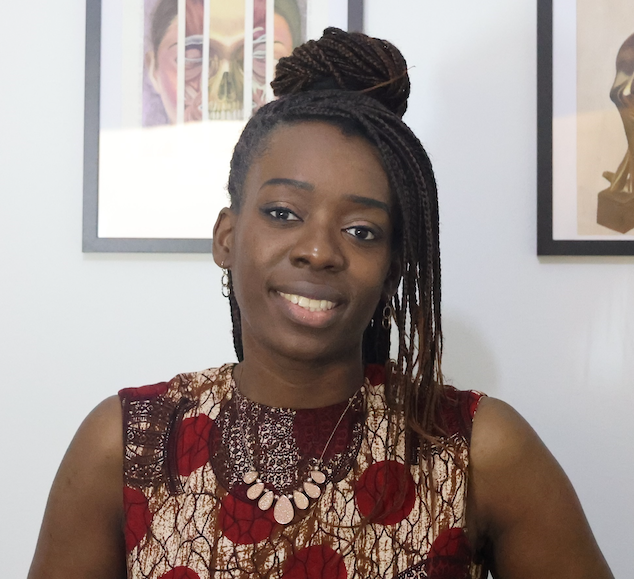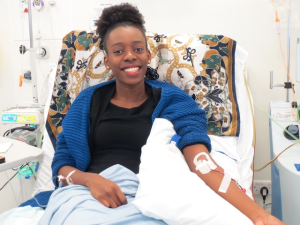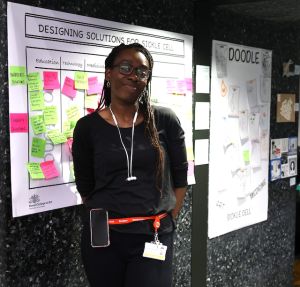Celebrating Disability History Month

“Raising awareness about living with Sickle Cell can help others facing similar challenges and demonstrate that it is possible to thrive in science while living with a disability.”
Mary Adeturinmo is currently Interim Executive Assistant for the Associate Provosts for EDI, and has previously worked as a Research Assistant based in the National Heart and Lung Institute. Her research role within the EQuity Lab is closely aligned with the Imperial Sickle Cell Group, of which she is a co-founder.
Combining science and creativity
Incorporating the design skills she developed in her Architecture BA with her passion for healthcare, Mary studied for an MRes in Healthcare and design, a course delivered by the Royal College of Art and Imperial.

Mary lives with a long-term health condition called Sickle Cell, or Sickle Cell Disease, and after completing her MRes, she became involved in Sickle Cell initiatives and the EQuity Lab at Imperial.
“The MRes focused on design and qualitative research, and through the Imperial Sickle Cell Group, I was exposed to clinical/ lab-based work. Though my preference is social science, it was great to understand Sickle Cell through a different lens. I enjoy interviewing people and conducting creative workshops, which are central activities in EQuity Lab. The lab examines gender and race inequalities in academia and how this can affect clinical research.”
Research from the EQuity Lab is underway, and Mary is excited to see the insights and findings that will emerge.
Imperial Sickle Cell Group
In 2023, Mary helped to form the Imperial Sickle Cell Group, alongside Professor Julie Makani (a previous Provost’s Visiting Professor), Dr Steven Okoli and Dr Norris Igbineweka.
“The research group is a platform for researchers, scientists and patients to come together and enhance the profile of sickle cell at Imperial. The group facilitates various research projects – clinical, lab-based, social science and patient engagement.”
Visibility and intersectionality

Mary credits an event organised for Women at Imperial Week as her first opportunity to meet Professor Makani, who then came to the Design for Sickle Cell exhibition that Mary worked on in collaboration with the Invisible Warrior Project. These interactions led to her involvement and, eventually, the founding of the Imperial Sickle Cell Group.
“Visibility for initiatives is powerful, and I had to think about which campaign I wanted to lend my voice to. We have Women at Imperial Week and Black History Month. For me personally, awareness around disability, particularly invisible disabilities, is also vital. Raising awareness about living with Sickle Cell can help others facing similar challenges and demonstrate that it is possible to thrive in science while living with a disability.”
“Intersectionality is tricky because people are multifaceted and there are also privileges within intersectional spaces, for example the privilege of access to education. All of these things can change how you are perceived in the world.”
Mary places value in the opportunities Disability History Month provides to share and learn from those with lived experiences. Programmes that have helped her navigate the world of academia include the Calibre leadership programme and the Snowden Trust Disabled Leaders Network.
What’s next?
Mary is working towards studying a PhD and plans to continue her professional and academic development, whilst also taking some time to reflect on her achievements so far.
“Continuing to manage my health is also another project in itself. The good thing is I have created a feedback loop into my work, based on my lived experience as a person who lives with Sickle Cell.”
In her spare time Mary enjoys de-stressing with a game of chess.
“I love chess for its endless variations and strategies, as it provides a space to think, play and feel at ease.”
Read next
Learn more about the Imperial Sickle Cell Group.
Learn more about the Invisible Warrior project.
Learn about the different cohorts of Provost’s Visiting Professors.